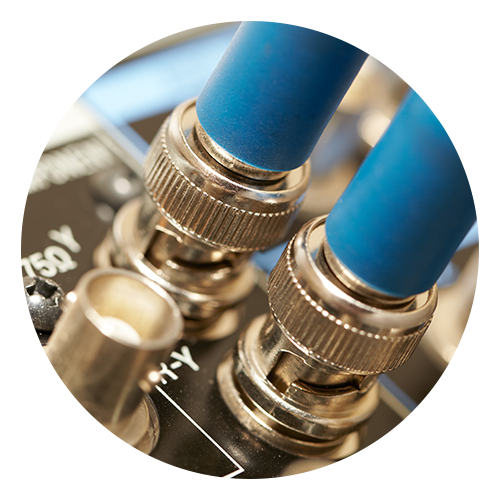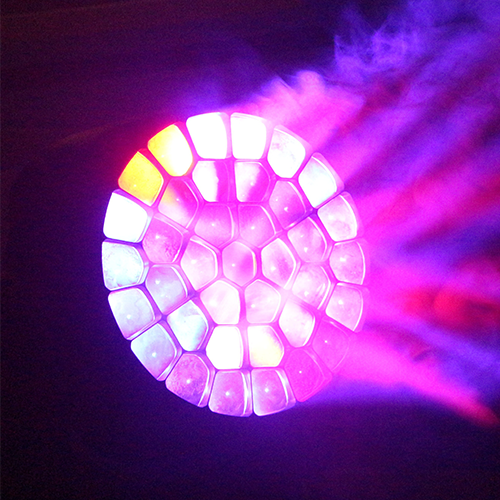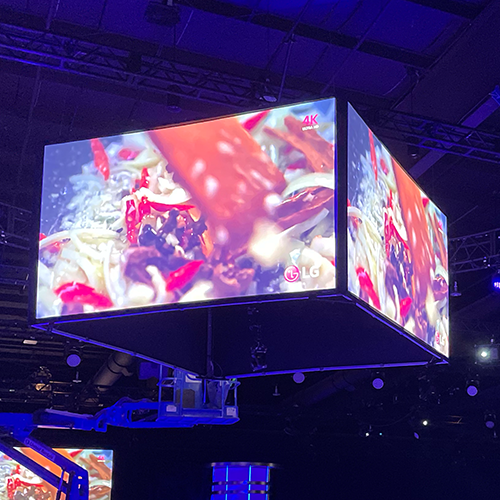

In this business we have chosen, there are often emergencies of varying degrees. It is an emergency if we have a wireless mic down on the show site. If we lose a video switcher, it is an emergency. If, as happened recently, a fully loaded trailer was involved in an out-of-state accident on its way to a show that loads 1,800 miles away in 54 hours, it is an emergency. In short, anything that affects a show negatively is an emergency in our business. But, if I have learned one thing after being in this business for over 39 years, it is that most emergencies are pretty simple, and if you have the stomach to have everyone else question your actions, they are pretty easy to deal with.
The first question in any emergency should be, “Is anyone hurt?”. No matter how big the issue, the individual must come first. So, when I received the call about our truck being upside down, my first question was, how is the driver, and is anyone else hurt? Upon learning that the driver was the only one injured and his injuries were minor and being treated, my next question was, “What was on the truck?”. Thank goodness for our RFID system! Right away, we knew exactly what was on the truck. This brought me to a few new questions. What do we have to do to get the same gear or replacement gear to show site and meet our schedule? Is the cost of replacement gear more or less than a quick recovery of the gear from the wreck site? It was quickly decided that recovery of as much gear as possible was the best option. Much of the load was cable and fiber, often more complex to replace than equipment. The assumption was that most of it would survive the accident no matter what, and any gear still operational would be a bonus. All of these decisions were made in under fifteen minutes.
So, the next question was, “How do we recover the gear from the accident site?” Within the next thirty minutes, two tractor-trailers were dispatched. One of the trailers needed a lift gate, and our only one was already loaded for a show to be delivered the next day in Dallas. So that trailer was off-loaded and on the road within thirty minutes. Five employees and two tractors were on their way within one hour of the first call. Within 5 hours, they were working in the dark, 226 miles away, removing heavy gear from a trailer upside down in a ditch between I-30 East and West in the middle of Arkansas. This was about 10:30 pm.
While one group of employees was on the way to the crash site, others were busy at home base making calls and plans. First, the recovery company in Arkansas wanted to hold all of our gear as collateral for the cost of the cleanup of the crash site. They usually hold everything until insurance companies pay them many weeks in the future. With the clock ticking, this was not an acceptable situation. Should we want to get our gear quicker, the estimated cost was between 40 and 60 thousand dollars. While we did not have exact numbers for the loss cost if we did not get our gear immediately, we did know that the recovery fee was less than the cost of just replacing the cable for a single show. As a result, promises and compromises were made. We promised to pay in full the following day, and they promised only to hold a portion of the gear hostage.
The next question was, “How late could a truck leave with a team of drivers and still make the load-in in Boston?” That time was determined to be noon the next day. So crews and all department heads were called and scheduled to arrive at the office at 5 am. This was when we estimated the first truck would return from the wreck site. We allotted 3 hours for our crews to determine what could go back to the show site and what we could not fix or did not have in our warehouse for replacement so that cross-rentals could be made and scheduled to arrive at the show site on time.
As I finish writing this, it is 7 am on Thursday morning – about 60 hours after the accident set everything in motion. The show in Boston is being set up so that 15,000 people can attend their show as if nothing ever happened.
While the actual costs of this accident to our company are still being calculated, they will quickly reach the six digits. But in times like these, there are many intangible benefits. In 35 years of business, we have never missed a load in, and this was no exception. The relationship and revenue for us and our client are not at risk. And, maybe most importantly, times like this bring people together, make them more robust, and demonstrate to our newer and younger employees what burgundy is all about.
Sincerely,
Tom Alford








